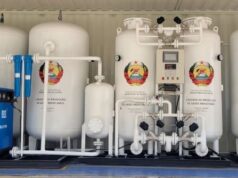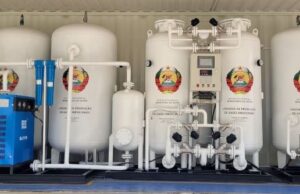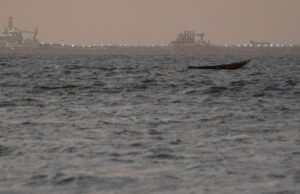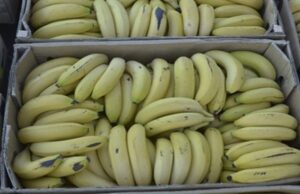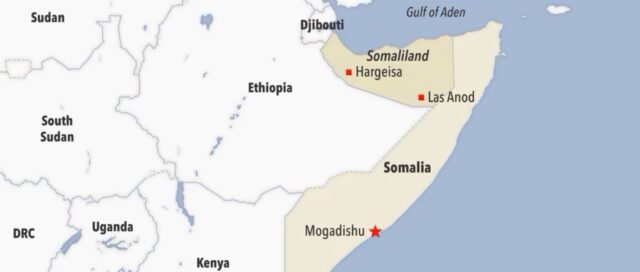
Internal strife in Africa, many feel, is endemic. One thing on the other will haunt Africa at every point in time. If the civil war in the Tigray region witnessed atrocities and spewed instability in the region less than two years ago, the present cataclysmic development among Somalia, Somaliland, and Ethiopia has the potential to erupt another undesirable war, that can take back the region to the verge of a war or a full-blown war zone.
For the uninitiated, it is important to have an understanding of the backdrop of the issue precipitating to become a central issue, that can not only affect the fledgling Eastern Africa, but the entire continent because of its cascading effect.
Somaliland
Somaliland is an autonomous region in northern Somalia. It broke away from the mainland and declared independence from Somalia in 1991. So far, no foreign power recognizes Somaliland’s sovereignty. However, it is self-governing with an independent government, democratic elections, and a distinct history, and is said to be more politically stable than mainland Somalia.
Backdrop
Somaliland has been a distinct region from Somalia since the late 1800s. It then became independent for just five days. At this point, it merged with present-day Somalia, which was then under Italian rule, beginning a long and often violent struggle. A rebel group, the Somali National Movement (SNM), emerged in Somaliland in the 1980s. In 1991 they declared Somaliland’s independence following the ousting of the military dictator Siad Barre, whose forces had killed tens of thousands of people during civil war along ethnic, clan-based lines. The SNM declared the city of Hargeisa as the capital of Somaliland, although it remains internationally unrecognized to this day. Over the next ten years, the SNM created a new constitution for Somaliland, which was agreed with a public referendum in 2001. With capital, Hargeisa, the small country carved out from mainland Somalia has a population of 3.5 million, who speak languages such as Somali, Arabic, and English. The major religion is Islam and it has an independent currency known as the Somaliland shilling. No country has so far recognized Somaliland.
Somalia At a Glance
Somalia, officially the Federal Republic of Somalia is a country in the Horn of Africa. The country is bordered by Ethiopia to the west, Djibouti to the northwest, the Gulf of Aden to the north, the Indian Ocean to the east, and Kenya to the southwest. Somalia has the longest coastline on Africa’s mainland. Its terrain consists mainly of plateaus, plains, and highlands. Somalia has an estimated population of around 17.1 million, of which over 2 million live in the capital and largest city Mogadishu, and has been described as Africa’s most culturally homogeneous country. Around 85% of its residents are ethnic Somalis, who have historically inhabited the country’s north. Ethnic minorities are largely concentrated in the south. The official languages of Somalia are Somali and Arabic. Most people in the country are Muslims, the majority of them Sunni.
Food Crisis
Somaliland, along with Ethiopia and Kenya in East Africa, is facing one of the worst droughts on record. In Somalia, over 7 million people are now acutely food insecure—including 213,000 people who are facing extreme hunger. Around 3 million livestock have also died because of the drought and water shortages. Women and girls in Somalia and Somaliland, who rely on farming for their livelihoods are being hardest hit by the prolonged drought. Without water and food for their livestock, they are leaving their homes in search of sustenance and shelter. In Somaliland, ActionAid’s emergency teams are working with local partners to provide life-saving food, water, and other support. But the situation is worsening rapidly, and we urgently need to reach more people.
Somaliland’s claim
Those in favour of Somaliland’s independence say that it has a strong claim because the regions are culturally and ethnically distinct. Somaliland has its currency, its military, issues its passports, and holds its elections, which have been observed and praised by international partners like the EU. Some people believe that it is also more stable than Somalia, and has seen little terrorist activity since 2008. However, there are fears, particularly among the African Union, that the formal recognition of Somaliland would encourage other secessionist movements on the African continent to also seek independence.
The World Bank estimated its GDP per capita at just USD 348, which would make it the fourth-poorest country in the world where it is independent. Today, Somaliland is suffering from its extreme vulnerability to issues caused by climate change. Communities struggling to recover from a two-year drought that ended in 2017 are now facing one of the driest rainy seasons in three decades, with the UN claiming that 2.2 million people are at risk of starvation across the Somalia/Somaliland region.
Why is Ethiopia interested in Somaliland?
Ethiopia, the landlocked country, signed a memorandum of understanding with Somaliland, a breakaway region of Somalia, to gain access to the Red Sea port of Berbera in exchange for a stake in its flagship carrier Ethiopian Airlines. However, the quantum of stake is not yet known. The Horn of Africa country currently relies on neighbouring Djibouti for most of its maritime trade. Ethiopia was cut off from the coast after Eritrea broke away from Addis Ababa. The deal also contains a proviso under which Somaliland has agreed to lease a Red Sea naval port to Ethiopia. This has sparked anger in Somalia. Somaliland is a self-governing breakaway state that Somalia says is part of its northern territory.
Signed in Addis Ababa by Ethiopian Prime Minister Abiy Ahmed and Somaliland’s leader Muse Bihi Abdi, the agreement grants Ethiopia a 50-year lease on a naval base with access to Somaliland’s Berbera port for commercial marine operations. In return, Ethiopia says it will provide an in-depth assessment of Somaliland’s quest for official recognition as an independent nation – the first time any other country has offered to do this.
The agreement has been long-awaited. In 2019, Ethiopia bought a 19 percent stake in the Port of Berbera with Somaliland retaining 30 percent and Dubai firm and port manager DP World holding 51 percent. In exchange for financing a continuing upgrade of the port with about USD 442m, DP World will manage the port for 30 years. The United Arab Emirates group’s investment in Berbera has previously sparked controversy in Somalia with parliament voting in 2018 for the deal to be declared null and void. That action had little effect on stopping the project.
What is at Stake for Africa?
There are a few visible impacts the skirmish can have on taking the conflict to a larger theatre. Foremost is the stand of Egypt and the alacrity it has shown to support Somalia’s cause over Somaliland. This is a direct offshoot of the conflict between Ethiopia and Egypt over the Renaissance dam, which the latter claims was a unilateral decision of the former. Egypt also contests the rights over Ethiopia to build the dam, which will cause water shortages and floods on that part of the White Nile that passes through its landmass.
The African Union is also in a Catch-22 situation. If it aligns with Somaliland, which many feel has a legitimate claim for independence because of its distinct colonial past, it can lead to the proliferation of breakaways in the existing League of Nations in the continent. It can lead to the surfacing of such demand from several other countries, which have apparent tribal or regional loyalties that divide them.
Issues like this can trigger international polarization as has happened in other countries like Libya, where warring two administrations are supported by different groups of countries. So far, no known country with a military power has reacted on this issue. African leaders apprehend that if the stalemate continues, it can trigger the same type of problems that Libya or countries in the Sahel Region are facing. That will not augur well for Africa and its progress.




